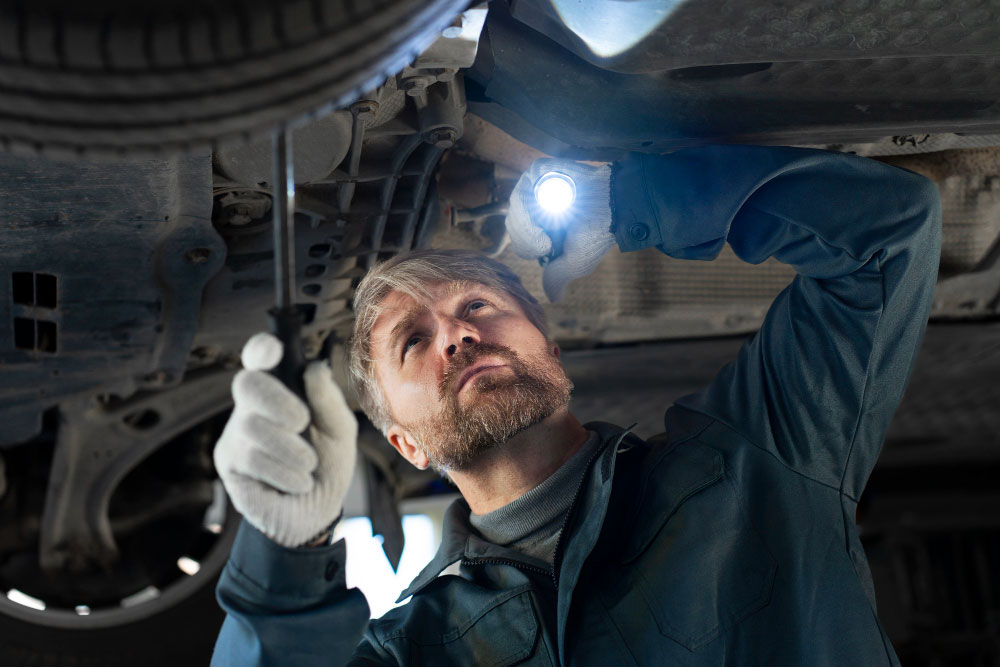Software from CSP documents the quality of the retightening torque of screw connections
Safety-relevant screw connections are checked particularly carefully in the automotive industry. Close-meshed spot checks per shift are the norm. At VW Osnabrück GmbH, the QS-Torque software is used to safeguard the screwdriving processes. With the modern CAQ solution, the manufacturer can prove that the same quality was and is ensured at all times for the retightening torque of a screw connection.
QS-Torque was already in use as software for tool testing when the plant was still part of the Karmann Group. Since the takeover by VW in 2010, the solution has been regularly updated. With the aim of properly documenting the company’s own process capability for internal quality assurance, a manual system was replaced shortly before the turn of the millennium. At that time, random samples were still noted by hand on quality control charts and also evaluated manually.
QS-Torque manages quality data from the screwdriving process
Today, VW Osnabrück checks the bolting processes with particularly flexible, modern test wrenches. The manufacturer recently started using the “Freedom3” test wrenches from SCS for quality control of bolted components on three production lines. A total of 1,500 individual tests per shift are recorded here for safety class A and B screw connections. The plant produces the VW Golf Cabrio and the two Porsche models Cayman and Cayenne on the three tested lines. A total of around 250 vehicles roll off the production line every day. QS-Torque is used to evaluate and archive the tightening torque data. The VW primary system stores further tightening values.
The number of regular spot checks corresponds to VW’s internal high quality standard. The entire quality assurance system, of which QS-Torque is an important and reliable component, fulfills the legal requirements for controlled production. Internally, the requirements have also been specified with the technical guidelines for documentation. The individual sample data is recorded and stored accordingly.
Simple operation and administration
A total of 13 employees at VW Osnabrück work with QS-Torque, four of whom are actively using the solution at all times. Group leader Norbert Siepker, responsible for screwdriving technology and WI assembly, particularly appreciates the software’s ability to assign specific authorizations. For example, there are employees who only read the data from the keys and evaluate it with QS-Torque, and others who can also carry out programming and change settings with administration authorization. Overall, handling is simple and intuitive. In general, the software also runs smoothly throughout, meaning that CSP support is rarely required. If a problem occurred in the past, it was quickly resolved with telephone support from the manufacturer in Großköllnbach. When the new inspection keys were introduced, a service technician was also recently on site to set up the solution and ensure smooth communication between the inspection key and QS-Torque.
More focus in future: curve analysis
Norbert Siepker highlights a major advantage of the software, which has the status of a quasi-standard in the automotive industry: “A major benefit of QS-Torque is that the new generation of inspection keys could be introduced so quickly and easily with this solution at the end of 2013. We were able to keep our familiar software and take tool testing to a new level.” The team at VW Osnabrück is currently working on bringing all the keys used up to a uniform standard. The supplementary curve module from QS-Torque will then also be used more extensively. With this module, it is possible to superimpose the tightening curve data recorded by the test wrench on the screen and analyze it in detail. This function will then support quality assurance in the future, especially when analyzing faults at the Osnabrück plant.
User profile VW AG, Osnabrück factory:
Osnabrück has been a proud automobile city for over 100 years. More than 3.3 million vehicles have been manufactured in the third largest city in Lower Saxony. Building on this tradition, Volkswagen Osnabrück GmbH was founded in December 2009 as a wholly-owned subsidiary of Volkswagen AG.
More than 1900 employees currently work in the Technical Development, Metal Group and Vehicle Construction divisions. The company’s core competence lies primarily in the areas of convertibles and roadsters as well as small series. A technical capacity of around 100,000 vehicles per year is currently installed on the 426,000 m² site in the Fledder district. The first complete vehicle from the new site is the Golf VI Cabriolet, which has been rolling off the production line since March 2011. The start of production of the Porsche Boxster in September 2012 and the Porsche Cayman in November 2012 underline the role as a multi-brand plant within the Volkswagen Group.
The Porsche Cayenne has also been assembled in Osnabrück since June 8, 2015.



